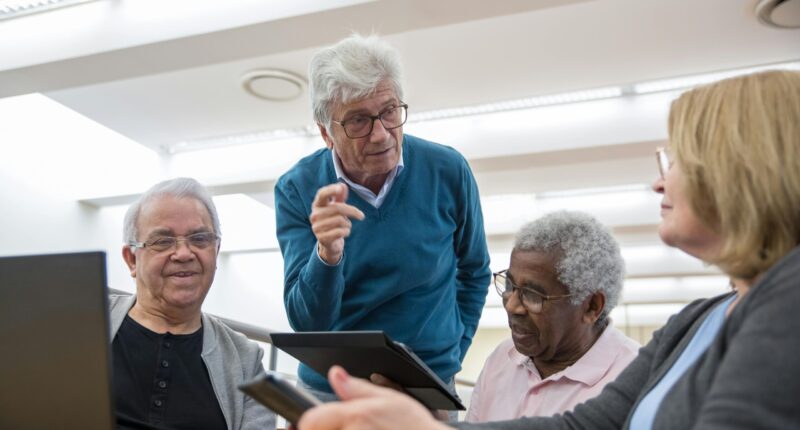Adults aged 55 and older are significantly more likely to share political misinformation than younger social media users, not because they’re unable to discern fake news from real news but because increasing partisanship muddies their judgment, according to research analysing nearly 2,500 adults across the United States and Brazil.
The study found that older people are more likely to believe information that aligns with their party, whether it is true or not, and to share such information. The findings were published in the Journal of Experimental Psychology: General.
“We found that older people are more likely to believe as true and to share information that aligns with their party, whether that information is true or not,” said senior author Leaf Van Boven, professor in the Department of Psychology and Neuroscience at CU Boulder.
Numerous previous studies have shown that older adults are more likely to spread misinformation. One study found that during the 2016 U.S. presidential election, Facebook users over the age of 65 shared almost seven times more fake news than adults under age 30. On Twitter, 80 per cent of fake news was shared by users over age 50.
Flagged as false
The researchers recruited 700 participants in Brazil and 1,700 in the U.S., ranging in age from 18 to 80. Participants viewed news headlines related to political events in their country. Some painted Republican or conservative ideologies in a favourable light. Others favoured Democrat or liberal ideologies. Unbeknownst to the participants, some headlines had been flagged by fact-checking websites as false.
Participants were asked how likely they would be to share the news on social media. In a follow-up experiment, participants were also asked whether the claim was, to the best of their knowledge, true or false. Researchers also assessed respondents’ political ideology and ability to override their intuitions and think analytically.
The research found no evidence that older adults are less able to think analytically and distinguish fake from real news. It did find that the 55-and-older set was far more partisan and that partisanship shaped how critically they assessed headline accuracy.
“They had different standards of evaluating evidence depending on whether it reflected well on their side or not,” said Van Boven.
The study stopped short of concluding that older adults knowingly share fake news. Instead, the study suggests that older adults are more sceptical when the news is favourable to “the other side”. If it makes their candidate look good, they tend to assume it’s true and share it. The older people get, the stronger this reaction becomes.
This trend held across political parties and across both the U.S. and Brazil, which currently has roughly 30 political parties, suggesting that the two-party system is not necessarily the issue.











